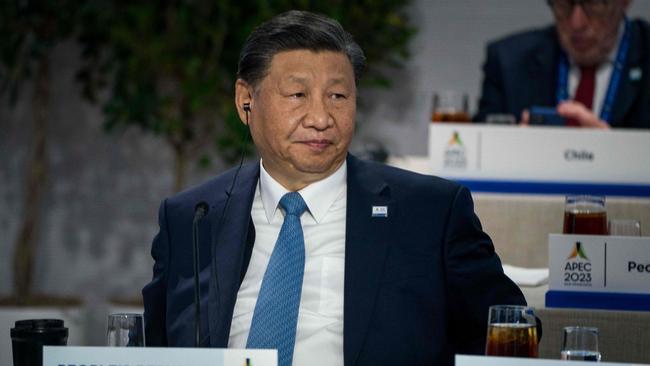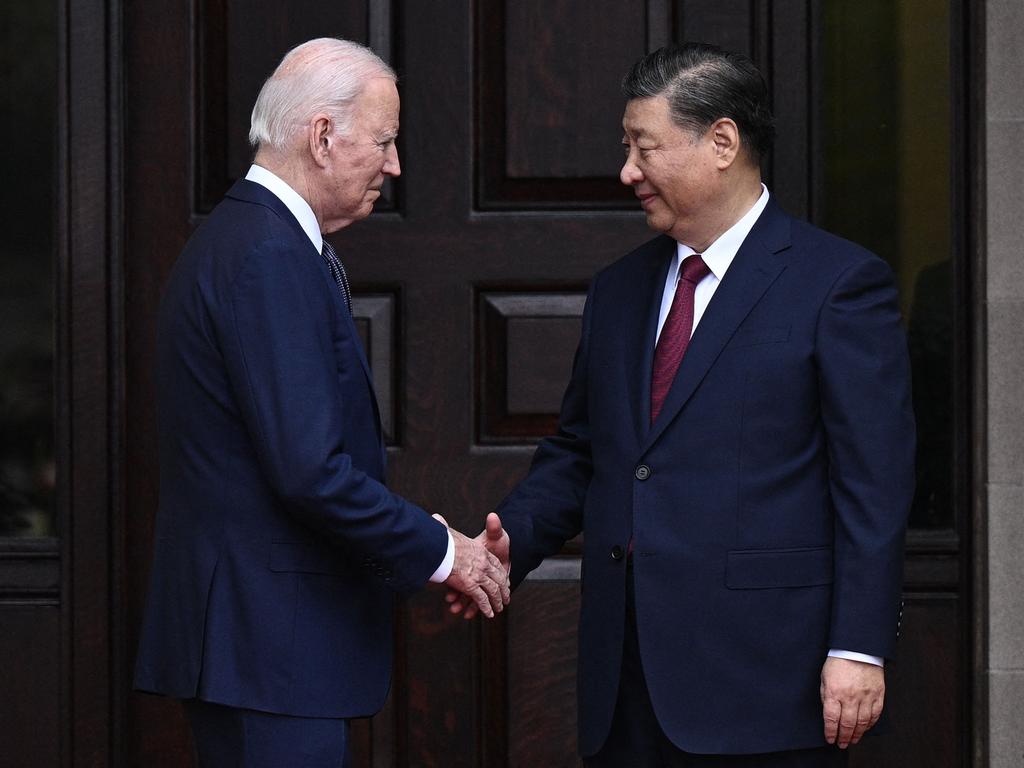
Its once invincible economy has begun to shrink as a share of America’s, its working-age population is falling as the junked one-child policy begins to bite, and as the Five Eyes nations revealed last month, its innovation is increasingly dependent on stealing foreign knowhow.
President Joe Biden said the Pacific was more vital to the US than ever before, a nice sentiment, but Australia’s economic bread remains buttered by China. Last year we exported almost $31bn of goods and services to the US, not even a sixth of what we send to China.
Our biggest fear should be a sudden stop in Chinese demand for our resources, which remains the most important pillar of our prosperity, for all the talk about resilience and diversification.
If you think the Australian dollar is low now, wait until Chinese steel demand collapses as it did in Europe and the US in the 1970s and 1980s. China still buys more than a third of our exports, down from a peak of 45 per cent in 2020. One company, Rio Tino, pays around 10 per cent of all corporate income tax in Australia – courtesy of its resource operations – highlighting the government’s fiscal vulnerability to China too.
While the US appears to be relishing trouncing China in the economic sphere, repeatedly talking about peaceful competition, we shouldn’t be hoping for a collapse in Beijing’s hitherto economic miracle.
At least Xi can blame the slowdown on the Covid-19 pandemic when millions of people were locked up for months. But as the pandemic response moves into the rear-view mirror the intrinsic brittleness of China’s economy is becoming clearer.
Xi told the assembled business audience that China wanted to be a “friend and partner” of the US, seeking to cauterise a feared decline in US investment in China that risked exacerbating its economy’s slowdown.
China needs American foreign investment, and we need Chinese domestic investment.
Whatever the Biden administration says, US business interest is unlikely to wilt. Money talks and the Chinese leader nevertheless received multiple standing ovations from the high-powered audience, including BlackRock chief Larry Fink, Apple’s Tim Cook and billionaire financier Steve Schwarzman, eager to infiltrate its massive domestic market.
China’s implosion will ultimately arise from its own increasingly anti-free market policies, as Xi and his acolytes steer the giant nation in an increasingly Marxist-Leninist direction, centralising more power in Beijing. Australia will need to brace for the fall.






It’s no surprise that Xi Jinping barely mentioned the Chinese economy at his speech to top American chief executives and financiers in San Francisco on Thursday AEDT. There’s little good news to relay. The world’s erstwhile economic powerhouse is facing the same economic funk Japan did a generation earlier.